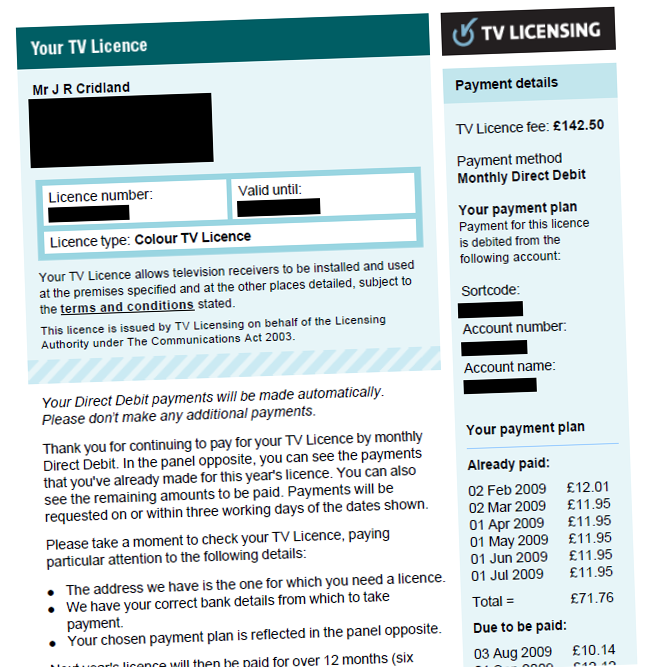
Moving home has been proven time and again to be one of the most stressful life events – even more so than getting divorced. So it’s no surprise that with a list as long as your arm of things you must remember to do, documents you must sign and people you must notify, that it’s easy to forget one or two of the little jobs along the way.
While forgetting to let a high-street shop know you’ve moved means you might miss a few vouchers coming through the post, there are more serious consequences if you forget to notify the TV Licensing Authority or sort out an EPC for your buyers.
The property experts at GetAgent have revealed which must-do’s you really must do, if you want to avoid being fined before you’ve even had a chance to settle into your new home. Most of these tasks can be done once you’ve already moved house – just be sure to sort your EPC before leaving your current property!
-
Make sure you’ve got your EPC ready for your buyer
A vital part of the property selling process – and the only thing that you must sort before moving – is sorting your EPC. If you fail to provide an EPC to your prospective buyer when selling your home, you can be fined 12.5% of the rateable value of the building – up to £5,000.
-
Update your address with TV Licensing
If you forget to let TV Licensing know you’ve moved house, you could be sent a penalty notice at the new property because they won’t have moved your licence details over (unless you don’t watch TV, in which case you do not need a TV licence). The maximum penalty is £1,000 plus any legal costs and/or compensation.
If you’re moving in with a spouse, partner or family member that already has a TV licence, you may even be eligible for a refund of your current licence – so it’s worth checking and updating your details in this case too.
-
Update your driving licence and vehicle logbook
You can be fined up to £1,000 for not updating your address on your driving licence, or for not updating it within your vehicle’s log book (otherwise known as V5C). It’s simple, and free to do both of these things – so ensure it’s done once you move house to avoid any fines, or stress, later down the line.
-
Update your insurance policies
Though it’s not a fine as such, if you fail to tell your insurers that you’ve changed your address, there’s a chance any future claims won’t be paid out. Many car insurers, for example, provide a policy based on the location or post code your vehicle will generally be parked in, or whether it’s parked on a street or in a garage. Make sure you update all your insurance policies, so that you don’t run into any issues with any future claims.
-
Update your pet’s microchip details
While the primary reason you should update your pet’s microchip details when you move house is so that your pet can be returned to you in the event they get lost or stolen, you can also be fined for not doing so. It is a legal requirement to microchip dogs, and keep the details up to date, and from 2024 it’ll be a legal requirement to microchip cats too. Ensure you’ve got access to your details on the microchip database and update your address as soon as possible.
-
Notify your local council
While you must notify your current council that you’re leaving, so you’re not liable for any council tax on the property you’re no longer living in, you must also notify your new council in the area you’ve moved to. It is a legal requirement to notify them within 21 days of moving into your new home, and failure to do so can result in a fine of up to £70 (with a further penalty of £280 possible too).
-
Notify HMRC
HMRC won’t immediately fine you for not notifying them of a change in your address, but you must do so in order to make sure all-important correspondence reaches you in the future. If you miss letters regarding self-assessment deadlines for example, you can end up with fines for not paying on time.
-
Notify your energy, WiFi and water providers
Any utilities or subscriptions related to your house must be cancelled or moved to a new address, or you could risk fines for not paying – even if you moved home. You must let each provider know that you are leaving the property, and you can in some cases take the service with you to your new home or cancel the service altogether. Failing to do so may mean you miss important letters and notices about future payments and get hit with fines for not paying them.
Colby Short, co-founder and CEO of GetAgent comments: “There is so much to remember when moving house, but ensuring that you’re updating the relevant organisations and providing your buyers with everything they need to settle into the property, will save you a lot of further headaches down the line – as well as saving those all-important pennies by avoiding any potential fines.
To stay as organised as possible, it’s worth creating a checklist of everyone you’ll need to inform of your move, so that no job gets forgotten about during what is usually a frantic and stressful time. Once the admin is out of the way you can relax knowing that you’ve done everything you need to – and can start to enjoy your new home!”
For more information on things that you may not be fined for, but need to remember to do when moving home – use our moving home checklist to tick things off as you go.
Help keep news FREE for our readers
Supporting your local community newspaper/online news outlet is crucial now more than ever. If you believe in independent journalism, then consider making a valuable contribution by making a one-time or monthly donation. We operate in rural areas where providing unbiased news can be challenging. Read More About Supporting The West Wales Chronicle


























https://stock-images.0o.si/?p#/old-man-tries-to-climb-ladder-falls-down-and-eats-cookie-2298498123
Comments are closed.